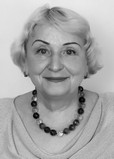Age-specific individual physical fitness markers for elite rowers under regular training
Фотографии:
ˑ:
Dr.Biol. T.F. Abramova1
PhD T.M. Nikitina1
N.M. Yakutovich1
Dr.Hab. L.V. Tarasova1
PhD F.A. Iordanskaya1
1Russian Federal Research Center of Physical Culture and Sports (VNIIFK), Moscow
The study analyzes benefits of the age-specific individual physical fitness markers applicable in the modern elite rowing sport. The 17-33 year-old (n=72) rowers, qualified Class I to World Class Masters of Sport with 4-20 years of sport experience were sampled for the study. Comparative analysis of physical fitness, working capacity, energy supply system functionality and strength indices was used to find a set of the most informative age-specific individual physical fitness markers that may be recommended as a basis for the physical-fitness-based selection of the rowers in every age group in the standard training system. The fitness and progress rating criteria are dominated by the following: body mass as a key factor; HR versus oxygen consumption as the key indicator of the cardio-respiratory system functionality and controllability; absolute maximum capacity and performance indices of the oxidizing system; maximal voluntary ventilation; absolute and relative anaerobic threshold indices; and relative strength indices.
Keywords: age, skill level, morphological status, physical working capacity, energy supply system functionality.
References
- Abramova T.F., Golovachev A.I. et al. Dinamika osobennostey teloslozheniya, pokazateley rabotosposobnosti i energoobespecheniya u lyzhnikov na etapakh «sportivnogo» ontogeneza s uchetom biologicheskoy zrelosti [Dynamics of constitution, working capacity and energy supply characteristics of skiers at stages of "sport" ontogeny with regard to biological maturity]. Vestnik Moskovskogo universiteta. Ser. XXIII. Antropologiya, 2012, no. 3, pp. 38-55.
- Abramova T.F., Golovachev A.I., Nikitina T.M. et al. Vozrastnye osobennosti funktsionalnogo sostoyaniya i fizicheskoy podgotovlennosti u sportsmenov, spetsializiruyushchikhsya v akademicheskoy greble [Age-specific features of functional state and physical fitness in rowers]. Vestnik sportivnoy nauki, 2016, no. 4, pp. 33-39.
- Abramova T.F., Nikitina T.M., Yakutovich N.M. Vozrastnaya dinamika fizicheskoy rabotosposobnosti i funktsionalnykh vozmozhnostey sportsmenov zhenshchin, spetsializiruyushchikhsya v akademicheskoy greble na etapakh tsentralizovannoy podgotovki [Age-specific dynamics of physical working capacity and functionality at female rowers' training process stages].Teoriya i praktika fiz. kultury, 2017, no. 2, pp. 3-7.
- Abramova T.F., Nikitina T.M., Kochetkova N.I. et al. Vzaimosvyaz pokazateley fizicheskoy podgotovlennosti i sportivnogo rezultata u sportsmenov, spetsializiruyushchikhsya v akademicheskoy greble [Physical fitness versus sports result in rowers].Vestnik sportivnoy nauki, 2017, no. 5, pp. 28-37.
- Iordanskaya F.A., Buchina E.V. Ortostaticheskaya ustoychivost v vegetativnom obespechenii rabotosposobnosti vysokokvalifitsirovannykh sportsmenov [Orthostatic tolerance in autonomic maintenance of working capacity in elite athletes]. Vestnik sportivnoy nauki, 2017, no. 2, pp. 26-34.




 Журнал "THEORY AND PRACTICE
Журнал "THEORY AND PRACTICE